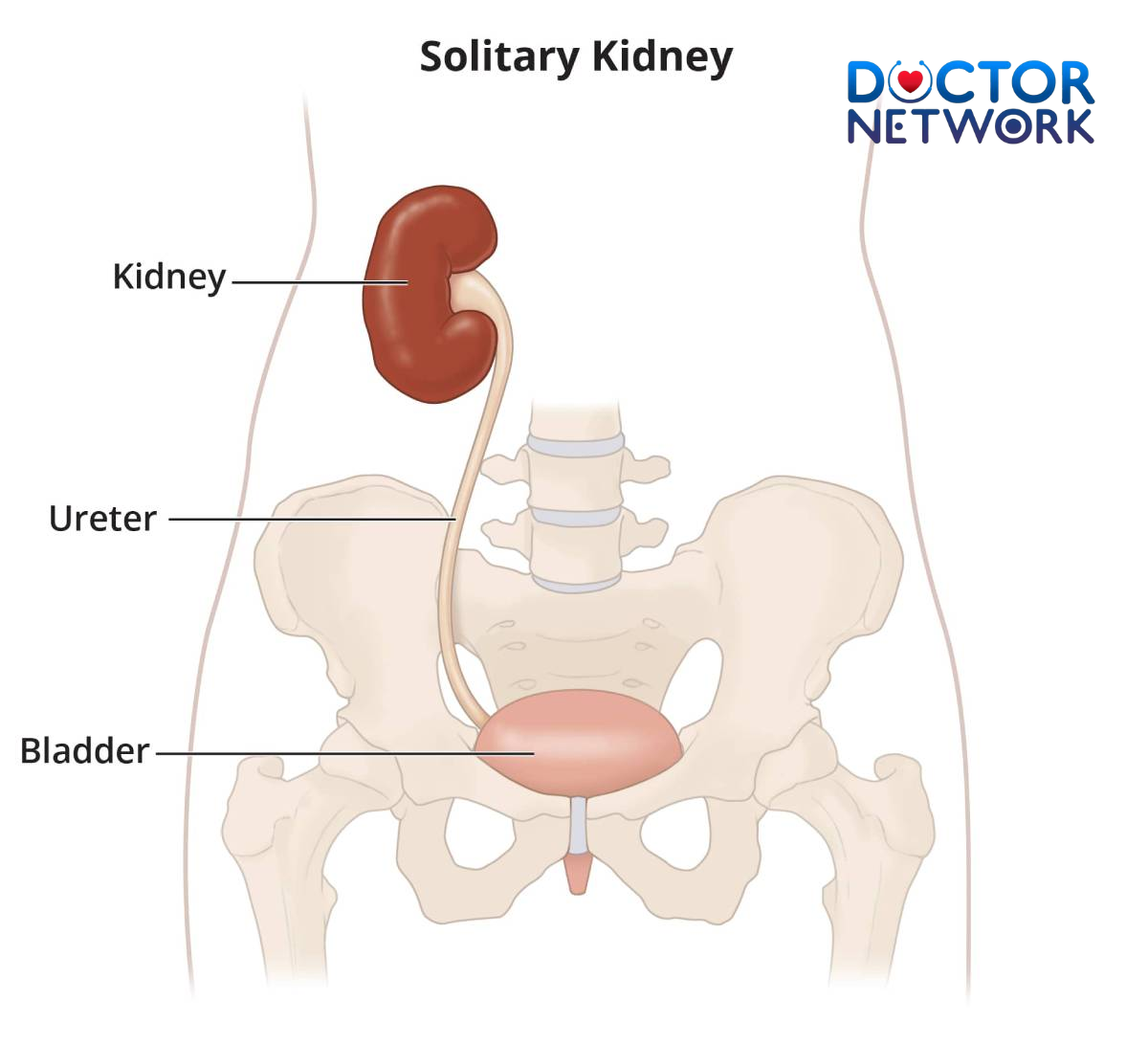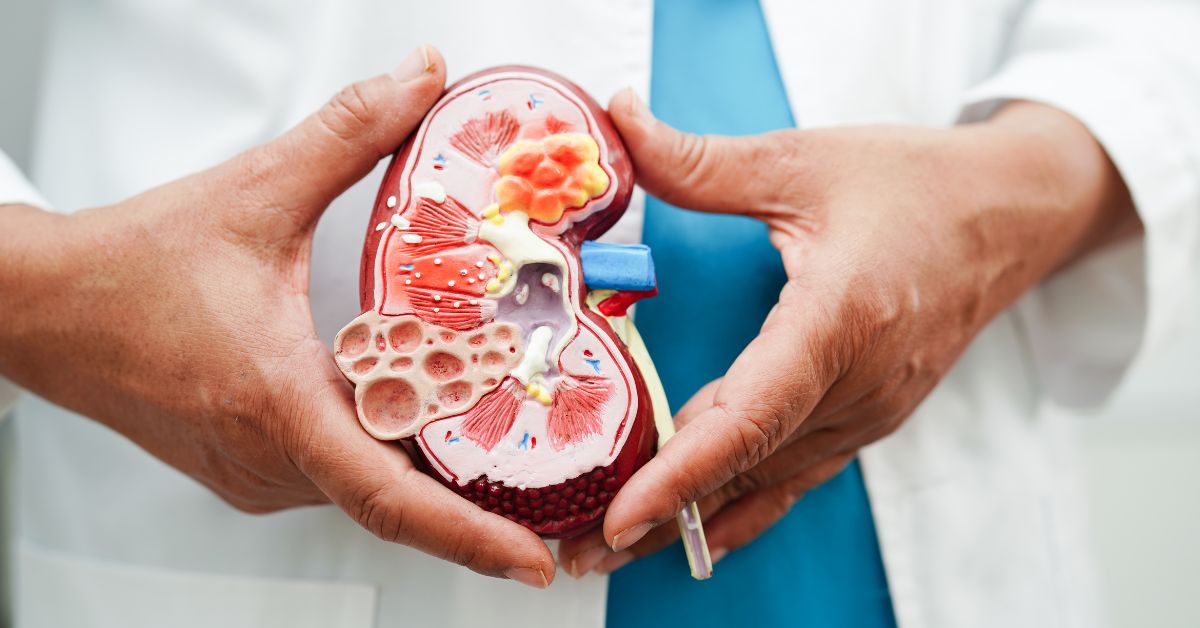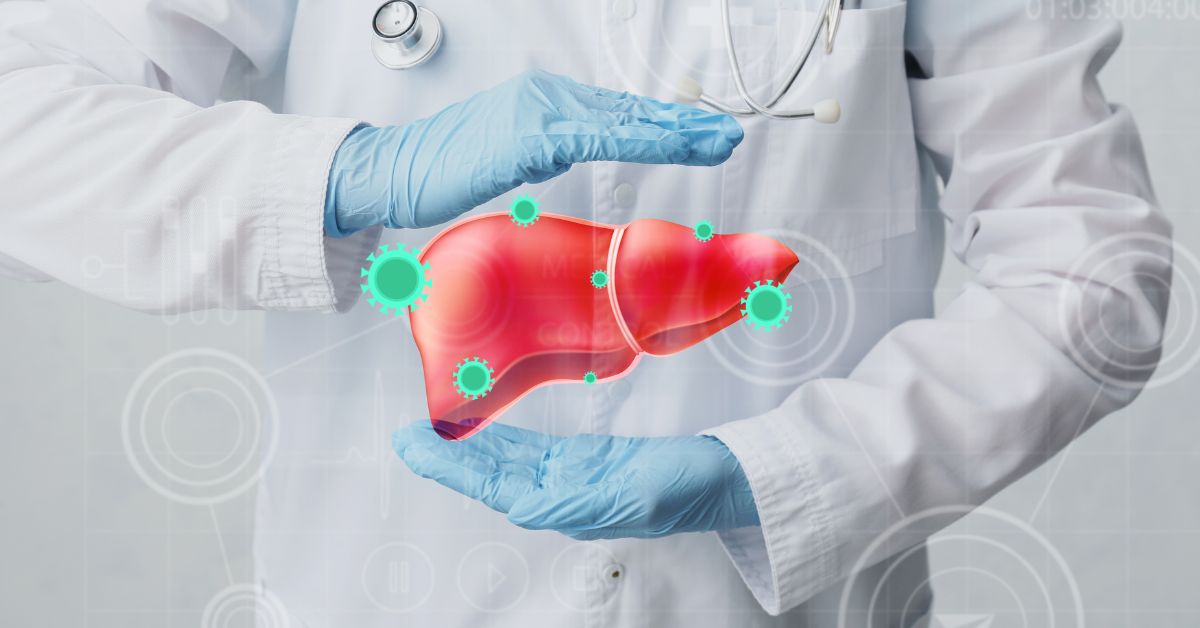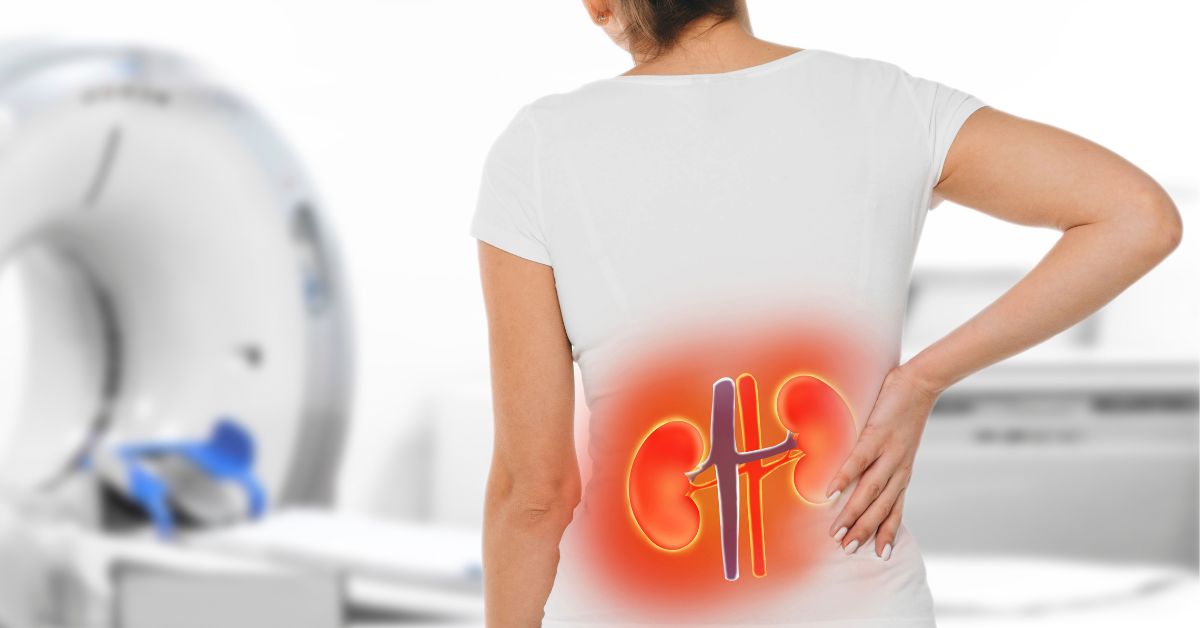Kidney stones are a common urinary tract condition that poses significant challenges to the lives and activities of those affected. Therefore, it’s a condition that requires early treatment to avoid severe health complications. Below are some ways to naturally pass kidney stones at home using simple ingredients for your reference.
What are Kidney Stones?
Kidney stones, also known as renal calculi or nephrolithiasis, are solid masses formed naturally in the urine due to the crystallization of mineral particles. Kidney stones can vary in size, shape, and can cause various symptoms and health issues.
Kidney stones are currently a prevalent condition.

Kidney stones are a common disease today
Causes of Kidney Stones
Kidney stones can form due to various reasons. Here are some common causes:
1. Natural composition of minerals
Some individuals tend to produce urine with higher mineral concentrations compared to others. When these concentrations reach a certain level, minerals can precipitate and form stones.
2. Dehydration
Not consuming enough water can lead to the concentration of minerals in urine, facilitating the formation of stones.
3. Genetic factors
Individuals with a family history of kidney stones are at a higher risk of developing this condition.

Blood in the urine is one of the symptoms of kidney stones
4. Dietary changes
A diet rich in oxalates (a type of organic acid), calcium, or purines (found in foods like red meat) can create conditions favorable for stone formation.
5. Other health issues
Medical conditions such as kidney diseases, endocrine disorders (e.g., increased uric acid production), and diabetes can increase the risk of kidney stones.
6. Medications
Certain medications can create conditions favorable for kidney stone formation, such as diuretics (types of medications used to treat high blood pressure).
7. Slow urinary flow
If urine moves slowly through the urinary tract, it can create conditions for concentration and stone formation.
8. Urinary tract infections
Urinary tract infections can alter the chemical composition of urine, contributing to stone formation.
Symptoms of Kidney Stones
1. Severe pain
One of the hallmark symptoms of kidney stones is excruciating pain, often described as ‘renal colic’ or ‘kidney colic.’ The pain usually originates from the flank region on one side, then may radiate forward and downward. The pain typically occurs suddenly, often after strenuous activities. Subsequently, it can intensify. Patients often experience agonizing sensations, unable to find a comfortable position to alleviate the pain.
When encountering these symptoms, immediate medical attention at a healthcare facility or hospital is necessary. Self-administering pain-relief measures at home is not recommended.
Two types of pain associated with kidney stones can be distinguished:
Pain due to stones in the kidney causing obstruction in the renal pelvis and ureter: Pain usually appears in the flank region, below the 12th rib, then spreads forward towards the groin and lower abdomen.
Ureteric stone pain: This pain originates from the flank region and follows the path of the ureter, extending to the groin and the genital area, possibly reaching the inner thigh.
Symptoms commonly associated with kidney stone pain include nausea, vomiting, and abdominal discomfort due to bowel inhibition. Patients might also experience fever and chills if combined with a urinary tract infection. During a medical examination, doctors may identify tender points in the flank region. Pressing the ureters may also elicit pain, and kidney enlargement might be observable.
There’s no direct correlation between the size or number of stones and the intensity of kidney pain. Some cases, like silent stones, may not cause noticeable symptoms or may produce vague discomfort in the flank region on one or both sides.
2. Blood in urine
Additionally, blood in the urine may occur when stones with rough or sharp surfaces irritate the urinary tract. Regardless of the size of kidney stones, vigorous activity or movement can also result in blood in the urine.
Blood in urine is one of the symptoms of kidney stones.
3. Urinary obstruction, retention
Obstruction and urinary retention can also occur when kidney stones cause blockages in the urinary tract, leading to urinary blockage or retention. As these symptoms are similar to many other conditions, consulting a doctor is essential for accurate diagnosis and treatment.
Nine Ways to Naturally Pass Kidney Stones at Home
Below are simple methods using common household ingredients that you can consider for passing kidney stones:
1. Hydration – Ways to naturally pass kidney stones
Drinking plenty of water daily is crucial for flushing kidney stones through the urinary tract. Patients should consume around 2 – 2.5 liters of water per day, divided into multiple intervals, avoiding excessive intake at once to prevent overwhelming the urinary system.
2. Using Watercress for Kidney Stone Passage – Ways to naturally pass kidney stones
Watercress has cooling and mild bitter properties, acting as a detoxifier and diuretic, aiding in kidney stone expulsion. Patients can use watercress by taking 50g of clean watercress, chopping it finely, mashing it with a little salt, and extracting the juice to drink twice daily.
3. Pineapple – Ways to naturally pass kidney stones
Pineapples are rich in citric acid, which helps prevent the crystallization of calcium, uric acid, and oxalates – major components of kidney stones. Pineapples also provide ample water and Vitamin C, enhancing immunity and preventing kidney inflammation. You can combine pineapple with tamarind or egg in kidney stone treatment.
4. Plantain Banana – Ways to naturally pass kidney stones
Plantain bananas have diuretic properties and help dissolve urinary stones. You can take around 7 – 10 ripe plantain bananas, peel and slice them thinly, sun-dry them, then roast and boil them in water. Drink the solution warm after meals.
5. Using Green Papaya for Kidney Stone Passage – Ways to naturally pass kidney stones
Green papayas have cooling properties and the ability to dissolve kidney stones, making it easier to pass them through the urinary tract. You can use green papaya by steaming it and then drinking water after eating it.

Green papaya is a food that helps push kidney stones out simply
6. Corn Silk – Ways to naturally pass kidney stones
Corn silk aids in heat dispersion, eliminates urinary sediment, and supports kidney stone treatment. You can take 50g of dried corn silk or 100g of fresh corn silk, clean it, cook it with 1 liter of water, then drink this water daily.
7. Couch Grass – Ways to naturally pass kidney stones
Couch grass helps cool the body, enhances urination, and supports kidney stone treatment. You can take 15 – 30g of couch grass leaves, wash them clean, and brew them to drink daily.
8. Knotweed – Ways to naturally pass kidney stones
Knotweed has diuretic effects and pain-relieving properties, helping to pass kidney stones through the urinary tract. You can consume 25 – 40g of knotweed leaves, clean and brew them to drink daily.
9. Mallow Leaves
Mallow leaves have cooling properties, aid detoxification, promote urination, alleviate symptoms of painful urination and blood in the urine. You can use fresh mallow leaves or…
Points to Consider When Using Home Remedies for Kidney Stone Passage
When employing Ways to naturally pass kidney stones at home, it’s essential to consider the following:
- Consult a doctor: Before attempting any method for self-treating kidney stones, seek advice from a physician. They will assess your stone condition and guide you on safe practices.
- Dosage: Always adhere to the recommended dosage. Using too much or too little may be ineffective or harmful.
- Patience: Many natural methods require patience and regular adherence. Don’t expect immediate results and follow the suggested timeframe.
- Food quality: Choose fresh and quality foods to ensure health safety. Wash fruits and vegetables before using them.
- Side effects: Monitor potential side effects
- Natural remedies can aid in passing kidney stones, but they should not replace specialized medical advice and treatment from a specialist physician. Kidney stones can lead to severe complications, and self-treatment may not be safe.
- Consider individual medical history: Some individuals with specific health issues or other risk factors may not be suitable for these methods. Therefore, always consult with your doctor before proceeding.
- Exercise and Lifestyle: Consider maintaining a healthy lifestyle and regular exercise to help the urinary system function optimally and aid in passing kidney stones.
The article has provided insights into the medical condition addressing common queries: ‘Ways to naturally pass kidney stones‘ However, it’s essential to note that self-treating kidney stones requires caution and guidance from a physician. If you experience any severe symptoms or see no improvement after using natural methods, seek medical consultation for proper guidance and treatment.
Kiểm Duyệt Nội Dung
More than 10 years of marketing communications experience in the medical and health field.
Successfully deployed marketing communication activities, content development and social networking channels for hospital partners, clinics, doctors and medical professionals across the country.
More than 6 years of experience in organizing and producing leading prestigious medical programs in Vietnam, in collaboration with Ho Chi Minh City Television (HTV). Typical programs include Nhật Ký Blouse Trắng, Bác Sĩ Nói Gì, Alo Bác Sĩ Nghe, Nhật Ký Hạnh Phúc, Vui Khỏe Cùng Con, Bác Sỹ Mẹ, v.v.
Comprehensive cooperation with hundreds of hospitals and clinics, thousands of doctors and medical experts to join hands in building a medical content and service platform on the Doctor Network application.


























